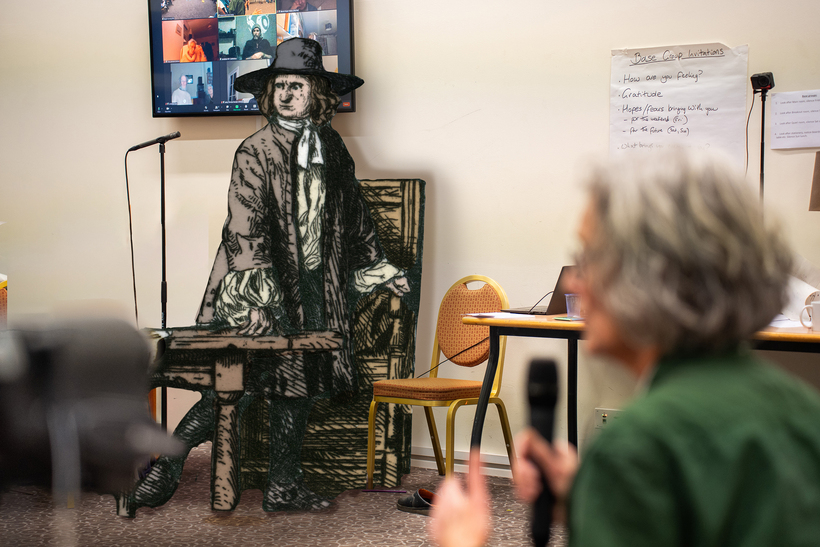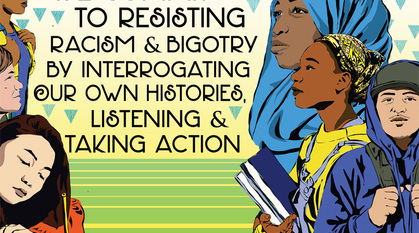George Fox's 59 rules for good government
Lucy Saint-Smith reviews George Fox's rules for good government and asks what we can learn from these today.

In 1659, England, Scotland and Ireland were once again in political turmoil. The head of state, Oliver Cromwell, had died the previous year and his successor, his son Richard, lacked his father's military credentials and parliamentary experience. Royalists hoped for a return to monarchy and radical groups, including Quakers, hoped for the revolutionary social reforms they had fought the civil wars for. Individuals from all angles were battling it out in words, writing pamphlets and letters to express their opinions.
George Fox, one of the founding members of the Society of Friends and the most well-known of its early leaders, published a pamphlet outlining his views of what a good government should be, entitled Fifty-nine particulars laid down for the regulating things, and the taking away of Oppressing Laws, and Oppressors, and to ease the Oppressed. His ideas were heavily influenced by the men and women he had built the Quaker faith with, many of whom had been radical parliamentarians during the civil wars.
As the UK's new government gets to work and Quakers celebrate the 400th anniversary of George Fox's birthday we might ask ourselves, what were his political opinions and how are they relevant Quakers today?
The Fifty-nine particulars lays out George's thoughts in 59 numbered statements with a lengthy conclusion. His key themes are:
Religious freedom
Unsurprisingly, he vehemently opposes religious persecution and insists on freedom of belief, arguing that no one should be punished for their faith. He demanded the right for people to meet for religious purposes and to speak freely about their beliefs.
Economic and social justice
George proposes redistributing some of the resources of the elite, including using palaces and churches as alms houses. He suggests that "all great gifts given to great men, be given to the poor" and that care for the vulnerable be a legal requirement, so that the disadvantaged would not have to beg.
Legal and penal reform
He advocates for simpler, fairer, more accessible legal processes, including judicial integrity, abolishing unnecessary legal fees and allowing individuals to represent themselves in court. He also argues for better conditions in prisons, selecting jailers that provide a good example to prisoners and for lighter sentences, specifically speaking against the death penalty for crimes such as theft.
Opposition to violence
The peace testimony was not yet a defining characteristic of the Society of Friends, and George did not advocate against the military, or even against owning weapons. He did argue that weapons should only be worn in an official capacity, that sword-ownership should be controlled and that all people should disdain violence. He also demanded the ban of violent animal sports such as bullbaiting.
Ethical leadership
George gives a list of qualities that he believes preclude people from leadership. This includes ambition, drunkenness, pride, scornfulness and greed.
Abolition of 'frivolous' pastimes and practices
When this pamphlet was published, the most controversial elements of it would have been the suggestions of radical religious and social reform. Today, the elements readers might find hardest to accept are George's opinions on pictures (to "be taken away and plucked up"), football ("stir[s] up the light vain minds of people") or Christmas (an "abomination").
Good government today
Quakerism is a faith that accepts change, and today many Quakers are aware of God at work all around them, even in pictures and football! Putting George's disdain for the frivolous aside, many of his political ideas are embraced by Friends today, in spirit if not in detail.
Recent political priorities for Quakers in Britain include advocating strongly for human rights such as the right to peaceful protest and the right to seek asylum. We have also been working through quiet diplomacy to raise the standards of truth and integrity in politics. We call for action to Make Polluters Pay for the climate change induced loss and damage they've caused. We also remain strong voices for peace, international law and diplomacy in conflict zones including the Middle East and Ukraine.
If you would like to find out more about the writings of George Fox and dip your toes into his large body of work, the Library has created a subject guide about George, giving you a place to start.


